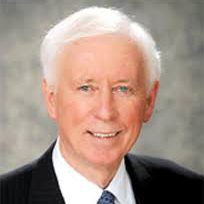Physicians of Pakistani-descent of North America Convention
Today, July 4, is Independence Day; that special day each year when we in the United States (US) celebrate the founding of our country some 237 years ago. The celebration has its roots in observations by John Adams who was to become the second president of the US, and who said of this day: “I am apt to believe that it will be celebrated, by succeeding generations, as the great anniversary festival. It ought to be commemorated as the day of deliverance by solemn acts of devotion to God almighty. It ought to be solemnized with pomp and parade, with shews, games, sports, guns, bells, bonfires and illuminations from one end of this continent to the other from this time forward forever more.”
With those thoughts in mind, this morning I got up early but did not, as is usually the case, go for a four-mile walk. Nor did I, as is so frequently the case this year, head for the airport to travel to a distant land. Instead I drove to the resort area just South of my home here in Central Florida where Disney World is located – or as we affectionately call it “the House of the Mouse”. There it was my privilege to give the opening lecture at the 36th Annual Association of Physicians of Pakistani-descent of North America (APPNA) Convention.
APPNA, one of the largest ethnic medical societies in North America, represents the over 15,000 physicians of Pakistani-descent in the US and Canada. It is headquartered in Chicago, was established in 1976 and has 35 chapters and 16 alumni networks.
The preamble to the APPNA Constitution reads: “We the physicians of Pakistani descent, out of our conviction for our profession and motherland, do hereby proclaim the establishment of the Association of Physicians of Pakistani-descent of North America, so that collectively we all can: uphold ethical and moral values, engage in social and professional activities, support educational and intellectual pursuits, upgrade medical care and thus glorify our Association.”
The aims and objectives include:
- To foster scientific development and education in the field of medicine and delivery of better health care
- To assist newly arriving Pakistani physicians in orientation and adjustment
- To institute ways and means to cooperate with other medical organizations in North America
- To encourage medical education and delivery of better health care in Pakistan
- To participate in medical relief and other charitable activities both in Pakistan and in North America
- To inform and educate decision makers and opinion making leaders in problems confronted by the medical community in general and Pakistani-American physicians in particular
APPNA has a long and commendable record of implementing its aims and objectives. And notably it extended its outreach to other medical organizations in 2011 when it made official its relationship with the American Medical Association (AMA) Specialty Society Caucus.
This morning I spoke to over 500 attendees and the session was broadcast on a live webcast, which included 130 health related institutions signed on in Pakistan.
The title of my presentation was “A Global Perspective on Medicine’s Future”. The abstract reads:
“The future for the profession of medicine globally is tied intimately to country-specific health care systems in which physicians work, and to five realities affecting the future of medical care.
Health care systems can be characterized by how they are financed. The list includes: financing from government tax revenues, social insurance paid by employers and employees, voluntary or private insurance, out-of-pocket payments, donations to charities, public-private partnerships and market-based financial transaction taxes. There are four basic health care systems worldwide. These are the Beveridge or government-run model, the Bismarck or mandatory insurance model, the national health insurance model and the out-of pocket model.
The five realities affecting the future of medical care and physicians’ practices include: the moral imperative of ethics in medicine, the promise of science, the challenge of noncommunicable disease, the threat of climate change and the hope for health system reform.”
Meeting with APPNA was a good way to celebrate Independence Day. Being with those physicians of other ethnic origins was a reminder that America has been from the beginning a nation of emigrants. And that reality, that diversity, and the difference of perspective that comes with it is something I appreciate and value more and more at the years go by.

